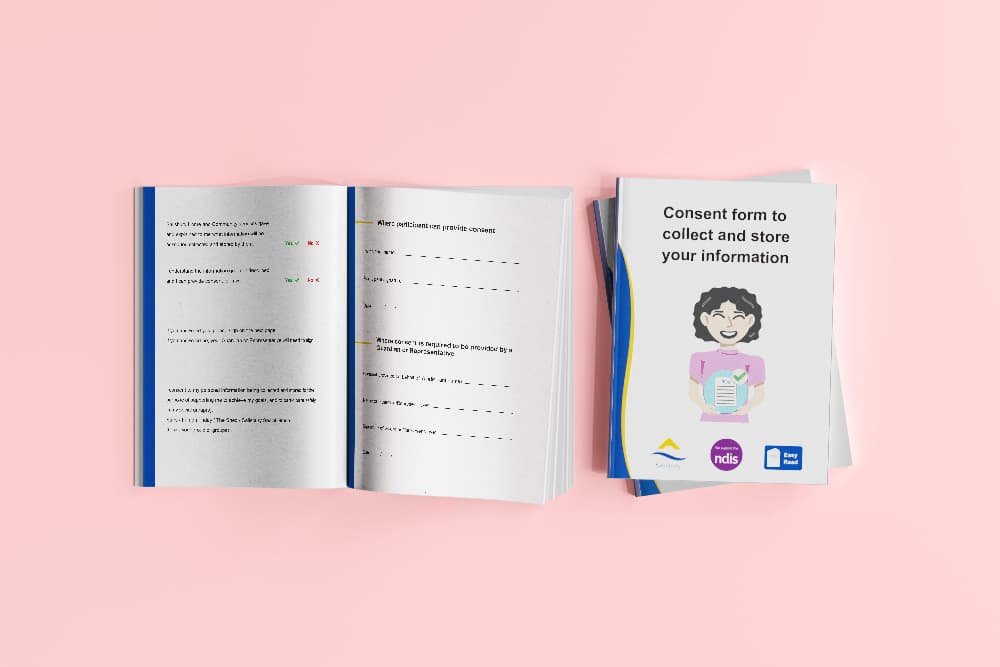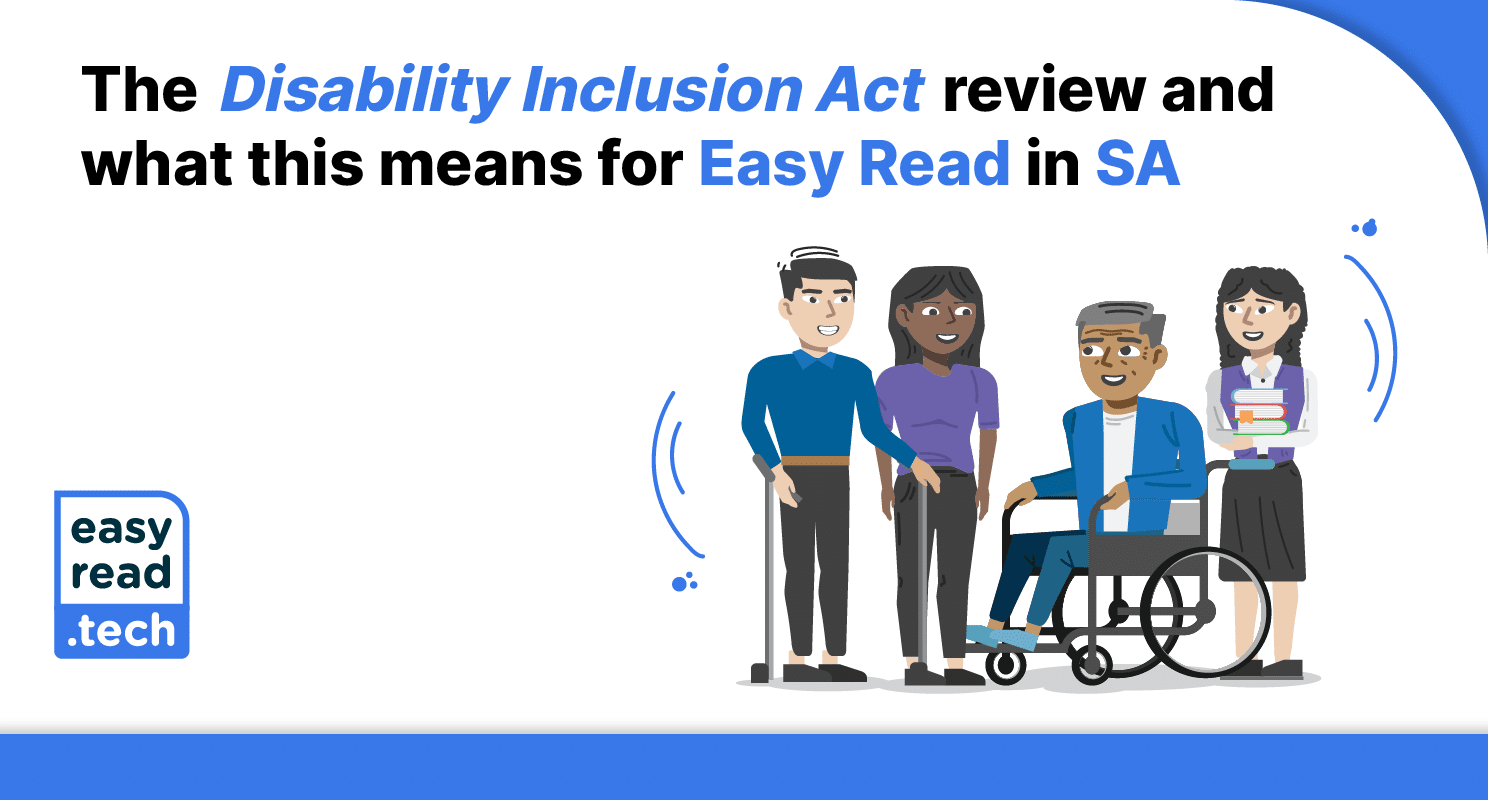About the Disability Inclusion Act
The South Australian Government in 2022 organised an independent review of the Disability Inclusion Act 2018 (SA), conducted by Richard Dennis AM PSM. This review involved an inquiry into the Act’s operation and effectiveness as the South Australian framework for promoting disability inclusion in society, and included a state-wide public consultation.
In June of 2022, Richard Dennis AM PSM released his report and recommendations into the inquiry. The report laid out 51 recommendations, including:
- Defining what a ‘barrier’ is, and acknowledging that barriers are not solely physical;
- Incorporating Simple English and elements of Easy Read like definitions of ‘hard words’, contact points and a reader guide into Disability Inclusion and Access Plans, which are devised and implemented by State authorities, including councils, agencies and government departments;
- Enforcing Easy Read documents as a standard requirement for all policies published by the State Government and local councils;
- Publishing an Easy Read version of the Act and the report.
Many of these recommendations have been implemented into the Disability Inclusion (Review Recommendations) Amendment Bill 2022, as well as strengthening the Act’s focus towards achieving an ‘inclusive community’ and ensuring a safe environment for persons with disabilities.
The Amendment Bill also adds expansions to the State Disability Inclusion Plan. This includes specifying strategies for persons with disabilities with more barriers and are at more risk, including women, children and Aboriginal and Torres Strait Islander peoples, and specifying priority areas for improvement in relation to inclusion.
What this means for Easy Read services
While the Amendment Bill does not introduce legislation specifically regarding Easy Read, there has been a push from the Government to ensure that policies and strategies that affect people with disabilities should be made accessible to people with disabilities. This raises the potential for Easy Read documents to become a standard amongst key agencies, which is a great move towards information accessibility!
This is particularly relevant amongst the State government and local councils, as these tiers of government tend to work more closely with individuals, and deliver information and services most closely connected to individuals. This can include information regarding community services (library, public health, disability services, etc.), local infrastructure and recreation and cultural activities and services.

Our recent work with the City of Salisbury required us to create Easy Read versions of their consent forms. This is a prime example of local governments being directly involved in people’s lives and shows the necessity of accessible information made available to people accessing direct services.
The Disability Advisory Council will also work with the State Government to provide advice on issues relevant to South Australians living with a disability, and their families and carers. This is an initiative to include people with disabilities directly in the decision-making process.
Easyread.tech is committed to ensuring that the voices of people with lived experience of disability are not left behind or out of the conversation. This is why we work closely with people with disabilities and key leaders in the accessibility space and are constantly reviewing our processes and products to ensure that our work is up-to-date, and of the highest standard we can provide.
Easyread.tech is ready for South Australia to serve as a leader in setting the standard for information accessibility. We are excited to see the outcomes of the consultation, and further developments in the accessibility space as a result.
To have your say on the Disability Inclusion (Review Recommendations) Amendment Bill, make sure to visit here.
For a free quote and demonstration of what we can do for your organisation, please
contact us.
